TREATMENTS INCLUDE:
SKIN ALLERGIES
Allergic skin conditions, often termed as allergic contact dermatitis, happen when the skin is bothered or hypersensitive to a particular material. These responses can show up as inflammation, itchiness, swelling or even blisters. Usual suspects are metals, perfumes and preservatives. Pinpointing and recognising the precise allergens is vital for successful therapy and regulation of these skin allergies. By steering clear of these irritants and adhering to the right medical guidance, people can notably diminish their discomfort and enhance their standard of living.
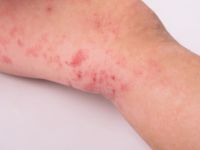
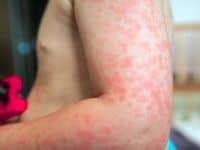
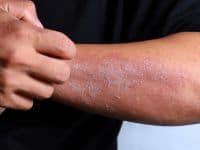

SIGNS OF SKIN ALLERGIES
- Inflamed and reddened skin: The affected skin area may exhibit inflammation and redness.
- Unending urge to scratch: A relentless itchiness may be felt in the troubled area.
- Skin puffiness: There might be an occurrence of swelling and puffiness on the skin.
- Formation of blisters: Fluid-filled blisters may develop.
- Emergence of rashes: Noticeable rashes may appear, often presenting as small bumps or hives.
- Dryness and cracking of skin: The skin could become dry, flaky and even prone to cracking.
- Stinging or burning sensation: Some individuals may experience a burning or stinging feeling on the affected skin patch.
UNDERSTANDING THE ROOT CAUSES OF SKIN ALLERGIES
- Metals: Frequently, nickel used in items like jewelry, belts, and zippers can act as an allergen.
- Fragrances: Scented products, including perfumes, can initiate allergic reactions.
- Preservatives: Chemicals employed to keep cosmetics and other personal care products fresh can trigger allergies.
- Rubber: Items made from latex and other rubber substances, such as gloves and balloons.
- Plants: Specific plants, like poison ivy, poison oak and poison sumac, often cause allergies.
- Dyes: The dyes in clothing, hair products and cosmetics can cause allergic reactions.
- Medications: Certain topical medicines, such as antibiotic ointments, may trigger skin allergies.
- Cleaning Products: Household cleaning products, soaps and detergents can carry potential allergens.
- Cosmetics: Skincare products, lotions and makeup can contain allergy-causing ingredients.
- Industrial Chemicals: Chemicals used in industrial environments or for construction purposes can be allergenic.
UNDERSTANDING THE DURATION OF SKIN ALLERGIES
The length of a skin allergy episode differs based on the reaction’s intensity and the continued presence of the allergen. Generally, minor skin allergies persist for several days to a week. If the allergen is recognised and evaded, signs usually begin to ameliorate within a few days. However, the healing process may extend for several weeks for more severe reactions.
Complying with healthcare guidance and treatment protocols is crucial for symptom control and expedited recuperation.
THE ROLE OF PATCH TESTING IN SKIN ALLERGY DIAGNOSIS
Patch testing serves as an efficient tool for diagnosing skin allergies, as it aids in identifying particular substances that incite allergic reactions. By applying traces of possible allergens on the skin and tracking the reaction over several days, healthcare providers can ascertain the precise allergen leading to dermatitis or other allergies. This specialised approach facilitates personalised treatment schedules, enabling patients to circumvent known allergens and manage their symptoms more successfully. Furthermore, patch testing is non-invasive and exceedingly accurate, positioning it as a trustworthy technique for enhancing the life quality of individuals confronting continuous skin allergies.
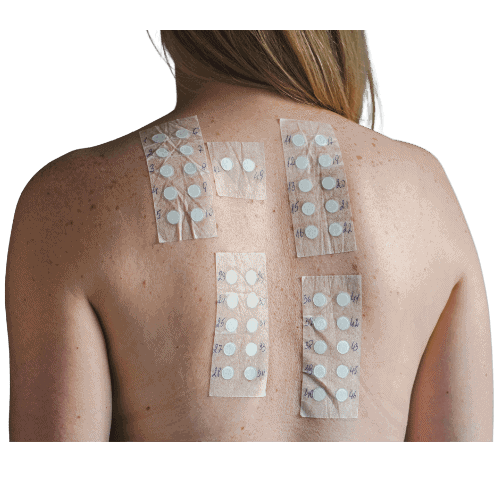
Frequently Asked Questions
HOW CAN SKIN ALLERGIES BE TREATED?
WHY AM I GETTING SKIN ALLERGIES ALL OF A SUDDEN?
REQUEST A CALL BACK
Please fill in this form and one of our team will give you a call back to arrange a consultation with one of our expert dermatologists.
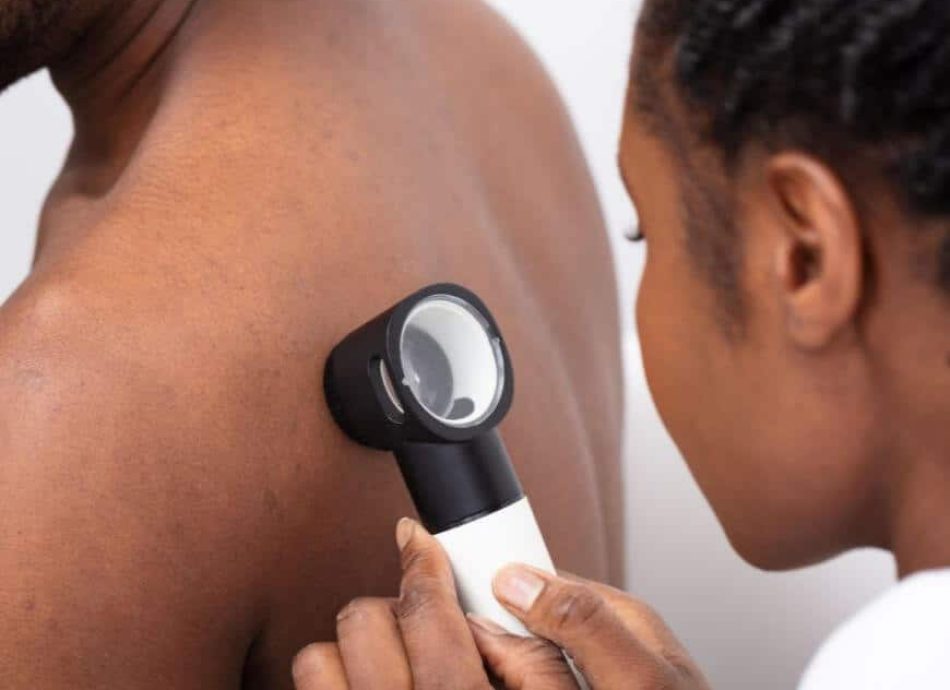
HEAR FROM OUR PATIENTS
WHY TREAT YOUR SKIN ALLERGIES AT EVERYTHING SKIN CLINIC?
At Everything Skin Clinic™, we have a team of highly trained Consultant dermatologists, who have completed specialist training in Dermatology and are on the specialist register of the General Medical Council. All our consultants hold substantive contracts with the best Dermatology centres in leading NHS hospitals. Therefore, you can be certain of the highest quality private care.
We offer a range of treatments and can offer one, or a combination of treatments to achieve the best results. Unlike many other clinics, we can offer diagnosis and treatment all under one roof by expert consultant dermatologist, so you know you’ll be in safe hands.
Latest INSIGHTS AND ADVICE

Your Guide to Autumn Skincare
With the weather gradually cooling and leaves taking on their autumnal palette, it’s also a gentle reminder that winter is on its way. Maintaining a vibrant and healthy skin during the transition from summer to cooler days can be challenging. Fear not – this comprehensive
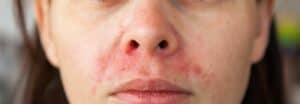
The Definitive Guide to Eczema
Eczema Awareness Month in October is a global initiative spotlighting those who suffer from this demanding skin ailment. Our perpetual aim is to arm you with a well-rounded understanding of eczema‘s core causes, differing treatments and beneficial coping mechanisms. This all-inclusive guide offers penetrating insights

Exploring Varicose Veins: Recognising, Managing and Preventing
Varicose Disease Awareness Month is focused on raising awareness about varicose veins, a common but frequently overlooked condition affecting millions globally. Throughout September, our goal is to emphasise the importance of early detection, explore the causes, treatment options and highlight lifestyle changes that can help




